地の香り、
生命の証拠、
不思議な驚き。
水の記憶、
万年のコード、
星を征服。
豊かさに、
あふれる生と死、
ノーストリリアは知らぬ。
But he didn’t want girls. He wanted postage stamps …
“You may not know it, my darling,” spieked the great bird-man, “but long before these people build cities, there were others in the Earth – the ones who came after the Ancient World fell. They went far beyond the limitations of the human form. They conquered death. They did not have sickness. They did not need love. They sought to be abstractions lying outside of time. And they died, E’lamelanie – they died terribly. Some became monsters, preying on the remnants of true men for reasons which ordinary men could not even begin to understand. Others were like oysters, wrapped up in their own sainthood. They had all forgotten that humanness is itself imperfection and corruption, that what is perfect is no longer understandable. We have the fragments of the Word, and we are truer to the deep traditions of people than people themselves are, but we must never be foolish enough to look for perfection in this life or to count on our own powers to make us really different from what we are. You and I are animals, darling, not even real people, but people do not understand the teaching of Joan, that whatever seems human is human. It is the word which quickens, not the shape or the blood or the texture of flesh or hair or feathers. And there is that power which you and I do not name, but which we love and cherish because we need it more than do the people on the surface. Great beliefs always come out of the sewers of cities, not out of the towers of the ziggurats. Furthermore, we are discarded animals, not used ones. All of us down here are the rubbish which mankind has thrown away and has forgotten. We have a great advantage in this because we know from the very beginning of our lives that we are worthless. And why are we worthless? Because a higher standard and a higher truth says that we are – the conventional law and the unwritten customs of mankind. But I feel love for you, my daughter, and you have love for me. We know that everything which loves has a value in itself, and that therefore this worthlessness of underpeople is wrong. We are forced to look beyond the minute and the hour to the place where no clocks work and no day dawns. There is a world outside of time, and it is to that which we appeal. I know that you have a love for the devotional life, my child, and I commend you for it, but it would be a sorry faith which waited for passing travelers or which believed that a miracle or two could set the nature of things right and whole. The people on the surface think they have gone beyond the old problems, because they do not have buildings which they call churches or temples, and they do not have professional religious men within their communities. But the higher power and the large problems still wait for all men, whether men like it or not. Today, Believing among mankind is a ridiculous hobby, tolerated by the Instrumentality because the Believers are unimportant and weak, but mankind has moments of enormous passion which will come again and in which we will share. So don’t you wait for your hero beyond the stars. If you have a good devotional life within you, it is already here, waiting to be watered by your tears and ploughed up by your hard, clear thoughts. And if you don’t have a devotional life, there are good lives outside.
He would have been completely lost if he had been without C’mell. Though his miraculous broadband hiering, which had so often surprised him at home, had not returned during his few hours on Old Earth, his other senses gave him a suffocating awareness of the huge number of people around him and above him. (He never realized that there were times, long gone, when the cities of Earth had populations which reached the tens of millions; to him, several hundred thousand people, and a comparable number of underpeople, was a crowd almost beyond all measure.) The sounds and smells of underpeople were subtly different from those of people; some of the machines of Earth were bigger and older than anything which he had previously imagined; and above all, the circulation of water in immense volumes, millions upon millions of gallons, for the multiple purposes of Earthport – sanitation, cooling, drinking, industrial purposes – made him feel that he was not among a few buildings, which he would have called a city in Old North Australia, but that he himself had become a blood-cell thrusting through the circulatory system of some enormous composite animal, the nature of which he imperfectly understood. This city was alive with a sticky, wet, complicated aliveness which he had hitherto not even imagined to be possible. Movement characterized it. He suspected that the movement went on by night and day, that there was no real cessation to it, that the great pumps thrust water through feeder pipes and drains whether people were awake or not, that the brains of this organization could be no one place, but had to comprise many sub-brains, each committed and responsible for its particular tasks. No wonder underpeople were needed! It would be boredom and pain, even with perfected automation, to have enough human supervisors to reconnect the various systems if they had breakdowns inside themselves or at their interconnections. Old North Australia had vitality, but it was the vitality of open fields, few people, immense wealth, and perpetual military danger; this was the vitality of the cesspool of the compost heap, but the rotting, blooming, growing components were not waste material but human beings and near-human beings. No wonder that his forefathers had fled the cities as they had been. They must have been solid plague to free men. And even Old Original Australia, somewhere here on Earth, had lost its openness and freedom in order to become the single giant city-complex of Aojou Nambien. It must, Rod thought with horror, have been a thousand times the size of this city of Earthport, (He was wrong, because it was one hundred fifty thousand times the size of Earthport before it died. Earthport had only about two hundred thousand permanent residents when Rod visited it, with an additional number walking in from the nearer suburbs, the outer suburbs still being ruined and abandoned, but Australia – under the name of Aojou Nambien – had reached a population of thirty billion before it died, and before the Wild Ones and the Menschenjager had set to work killing off the survivors.)
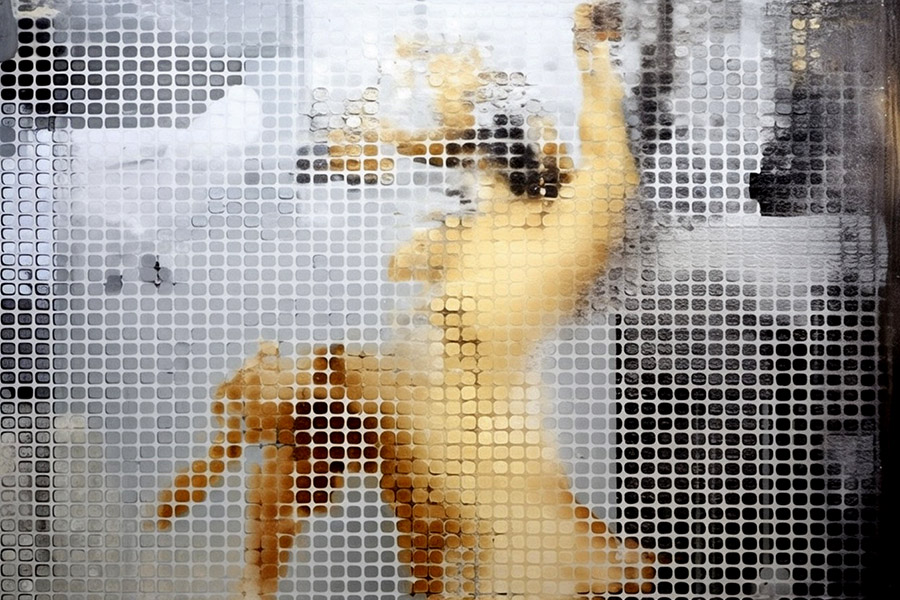


The Daimoni had come to Khufu II, just as they came to many other planets, including Old Earth, Manhome itself. They had come out of nowhere and they went back to the same place. Some people thought that they were human beings who had acclimated themselves to live in the subspace which planoforming involved; others thought that they had an artificial planet on the inside of which they lived; still others thought that they had solved the jump out of our galaxy; a few insisted that there were no such things as Daimoni. This last position was hard to maintain, because the Daimoni paid in architecture of a very spectacular kind – buildings which resisted corrosion, erosion, age, heat, cold, stress, and weapons. On Earth itself Earthport was their biggest wonder – a sort of wine glass, twenty-five kilometers high, with an enormous rocket field built into the top of it. On Norstrilia they had left nothing; perhaps they had not even wanted to meet the Old North Australians, who had a reputation for being rough and gruff with strangers who came to their own home planet. It was evident that the Daimoni had solved the problem of immortality on their own terms and in their own way; they were bigger than most of the races of mankind, uniform in size, height and beauty; they bore no sign of youth or age; they showed no vulnerability to sickness; they spoke with mellifluous gravity; and they purchased treasures for their own immediate collective use, not for retrade or profit. They had never tried to get stroon or the raw santaclara virus from which it was refined, even though the Daimoni trading ships had passed the tracks of armed and convoyed Old North Australian freight fleets. There was even one picture which showed the two races meeting each other in the chief port of Olympia, the planet of the blind receivers: Norstrilians tall, outspoken, lively, crude, and immensely rich; Daimoni equally rich, reserved, beautiful, polished and pale. There was awe (and with awe, resentment) on the part of the Norstrilians toward the Daimoni; there was elegance and condescension on the part of the Daimoni toward everyone else, including the Norstrilians. The meeting had been no success at all. The Norstrilians were not used to meeting people who did not care about immortality, even at a penny a bushel; the Daimoni were disdainful toward a race which not only did not appreciate architecture, but which tried to keep architects off its planet, except for defense purposes, and which desired to lead a rough, simple, pastoral life to the end of time. Thus it was not until the Daimoni had left, never to return, that the Norstrilians realized that they had passed up some of the greatest bargains of all time – the wonderful buildings which the Daimoni so generously scattered over the planets which they had visited for trade or for visits.
The first thing, the very first thing, which he saw was a display cabinet full of postage stamps. It was made of glass, but he could see the soft blues and the inimitable warm brick reds of his Cape of Good Hope triangular postage stamps. He had come to Earth and there they were! He peered through the glass at them. They were even better than the illustrations which he had seen back on Norstrilia. They had the temper of great age upon them and yet, somehow, they seemed to freight with them the love which men, living men now dead, had given them for thousands and thousands of years. He looked around, and saw that the whole room was full of odd riches. There were ancient toys of all periods, flying toys, copies of machines, things which he suspected were trains. There was a two-story closet of clothing, shimmering with embroidery and gleaming with gold. There was a bin of weapons, clean and tidy – models so ancient that he could not possibly guess what they had been used for, or by whom. Everywhere, there were buckets of coins, usually gold ones. He picked up a handful. They had languages he could not even guess at and they showed the proud imperious faces of the ancient dead. Another cabinet was one which he glanced at and then turned away from, shocked and yet inquisitive: it was filled with indecent souvenirs and pictures from a hundred periods of men’s history, images, sketches, photographs, dolls and models, all of them portraying grisly, comical, sweet, friendly, impressive or horrible versions of the many acts of love. The next section made him pause utterly. Who would have ever wanted these things? Whips, knives, hoods, leather corsets. He passed on, very puzzled. The next section stopped him breathless. It was full of old books, genuine old books. There were a few framed poems, written very ornately. One had a scrap of paper attached to it, reading simply, “My favorite.” Rod looked down to see if he could make it out. It was ancient Inglish and the odd name was “E. Z. C. Judson, Ancient American, A.D. 1823-1866” Rod understood the words of the poem but he did not think that he really got the sense of it. As he read it, he had the impression that a very old man, like the Catmaster, must find in it a poignancy which a younger person would miss:
“Then you bought futures in stroon, but you offered them for sale. You held back the sales, shifting titles and changing prices, so that not even the central computer knew what you were doing. You bought almost all of the eighth year from now, most of the seventh year from now, and some of the sixth. You mortgaged each purchase as you went along, in order to buy more. Then you suddenly tore the market wide open by offering fantastic bargains, trading the six-year rights for seventh-year and eighth-year. Your computer made such lavish use of Instant Messages to Earth that the Commonwealth defense office had people buzzing around in the middle of the night. By the time they figured out what might happen, it had happened. You registered a monopoly of two year’s export, far beyond the predicted amount. The government rushed for a weather recomputation, but while they were doing that you were registering your holdings on Earth and remortgaging them in FOE money. With the FOE money you began to buy up all the imports around Old North Australia, and when the government finally declared an emergency, you had secured final title to one and a half stroon years and to more megacredits, FOE money megacredits, than the Earth computers could handle. You’re the richest man that ever was. Or ever will be. We changed all the rules this morning and I myself signed a new treaty with the Earth authorities, ratified by the Instrumentality. Meanwhile, you’re the richest of the rich men who ever lived on this world and you’re also rich enough to buy all of Old Earth. In fact, you have put in a reservation to buy it, unless the Instrumentality outbids you.”
It was not Vomact’s appearance which caused the impression. It was the personality which tingled out of every pore. Vomact could become calm when he knew, from his medical wisdom, that kindness and tranquility were in order, but these qualities were not usual to him. He was vivacious, moody, lively, talkative to an extreme, but he was sensitive enough to the person to whom he was talking: he never became a bore. Even among Norstrilian women, Rod bad never seen a person who expressed so much, so fluently. When Vomact talked, his hands were in constant motion – outlining, describing, clarifying the points which he described. When he talked he smiled, scowled, raised his eyebrows in questioning, stared with amazement, looked aside in wonder. Rod was used to the sight of two Norstrilians having a long telepathic conversation, spieking and hiering one another as their bodies reposed, comfortable and immobile, while their minds worked directly on one another. To do all this with the speaking voice – that, to a Norstrilian, was a marvel to hear and behold. There was something graceful and pleasant about the animation of this Earth doctor which stood in complete contrast to the quick dangerous decisiveness of the Lord Redlady. Rod began to think that if Earth were full of people, all of them like Vomact, it must be a delightful but confusing place. Vomact once hinted that his family was unusual, so that even in the long weary years of perfection, when everyone else had numbers, they kept their family name secret but remembered.
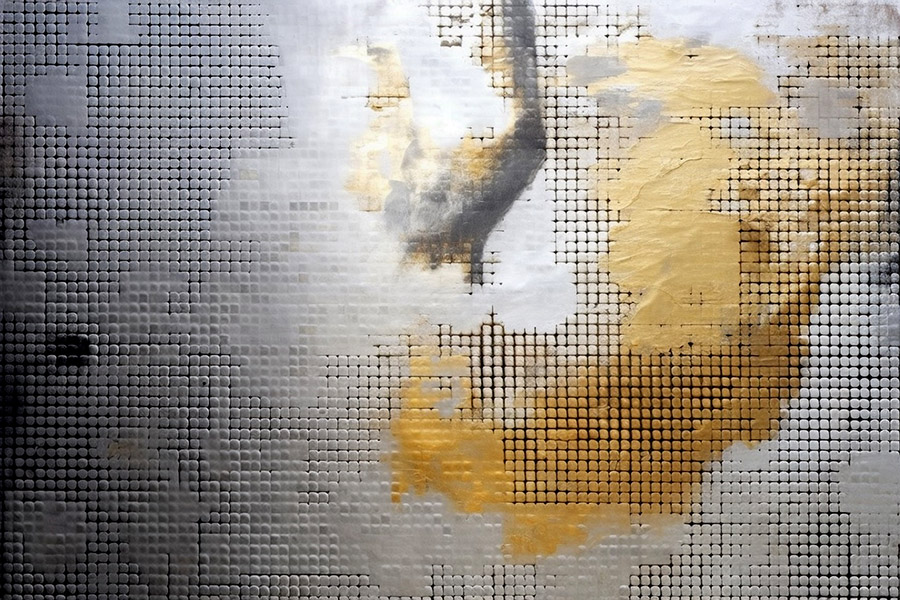


“Not exactly,” said C’mell, “but they find that we are better than they are at almost anything. Real work, that is, not statesmanship like running the Instrumentality and the Earth government. Here and there a real human being gets to work, and there are always offworlders like you to stimulate them and challenge them with new problems. But they used to have secure lives of four hundred years, a common language, and a standard conditioning. They were dying off, just by being too perfect. One way to get better would have been to kill off us underpeople, but they couldn’t do that all the way. There was too much messy work to be done that you couldn’t count on robots for. Even the best robot, if he’s a computer linked to the mind of a mouse, will do fine routine, but unless he has a very complete human education, he’s going to make some wild judgments which won’t suit what people want. So they need underpeople. I’m still cat underneath it all, but even the cats which are unchanged are pretty close relatives of human beings. They make the same basic choices between power and beauty, between survival and self-sacrifice, between common sense and high courage. So the Lady Alice More worked out this plan for the Rediscovery of Man. Set up Ancient Nations, give everybody an extra culture besides the old one based on the Old Common Tongue, let them get mad at each other, restore some disease, some danger, some accidents, but average it out so that nothing is really changed.”
The Catmaster looked at him with sympathy. “None of us can. We may think that we are free. Our lives are made for us by the people we happen to know, the places we happen to be, the jobs or hobbies which we happen to run across. Will I be dead a year from now? I don’t know. Will you be back in Old North Australia a year from now, still only seventeen, but rich and wise and on your way to happiness? I don’t know. You’ve had a run of good luck. Look at it that way. It’s luck. And I’m part of the luck. If you get killed here, it will not be my doing but just the over-strain of your body against the devices which the Lady Goroke approved a long time ago – devices which the Lord Jestocost reports to the Instrumentality. He keeps them legal that way. I’m the only underman in the universe who is entitled to process real people in any way whatever without having direct human supervision. All I do is to develop people, like an Ancient Man developing a photograph from a piece of paper exposed to different grades of light. I’m not a hidden jungle, like your men in the Garden of Death. It’s going to be you against you, with me just helping, and when you come out you’re going to be a different you – the same you, but a little better there, a little more flexible here. As a matter of fact, that cat-type body you’re wearing is going to make your contest with yourself a little harder for me to manage. We’ll do it, Rod. Are you ready?”
C’mell looked at Rod as though he were a handsome beast with not a brain in his head. Rod looked back at her, deliberately letting himself feel stupid. This was something which he did very well, since by neither hiering nor spieking at home, he had had to sit through interminable hours of other people’s conversation when he was little, never getting the faintest idea of what it was all about. He had discovered very early that if he sat still and looked stupid, people did not bother him by trying to bring him into the conversation, turning their voices on and braying at him as though he were deaf. He tried to simulate the familiar old posture and was rather pleased that he could make such a good showing with C’mell watching him. Even when she was seriously fighting for their freedom and playing girl all at once, her corona of blazing hair made her shine forth like the sun of Earth itself; among all these people on the platform, her beauty and her intelligence made her stand out, cat though she was. Rod was not at all surprised that he was overlooked, with such a vivid personality next to him; he just wished that he could be overlooked a little more, so that he could wander over idly and see whether the body was Eleanor’s or one of the robots’. If Eleanor had already died for him, in her first few minutes of the big treat of seeing Earth, he felt that he would never forgive himself as long as he lived.
“You stand right where you are till I come back!” They stood, saying nothing. C’mell and A’gentur took the place for granted. Rod started as though he would drink up the world with his eyes. In this one enormous room, there was more antiquity and wealth than all Old North Australia possessed. Curtains of an incredibly rich material shimmered down from the thirty-meter ceiling; some of them seemed to be dirty and in bad repair, but any one of them, after paying the twenty million percent import duty, would cost more than any Old North Australian could afford to pay. There were chairs and tables here and there, some of them good enough to deserve a place in the Musuem of Man on New Mars. Here they were merely used. The people did not seem any the happier for having all this wealth around them. For the first time, Rod got a glimpse of what the spartan self-imposed poverty had done to make life worthwhile at home. His people did not have much, when they could have chartered endless argosies of treasure, inbound from all worlds to their own planet, in exchange for the life-prolonging stroon. But if they had been heaped with treasure they would have appreciated nothing and would have ended up possessing nothing. He thought of his own little collection of hidden antiquities. Here on Earth it would not have filled a dustbin, but in the Station of Doom it would afford .him connoisseurship as long as he lived.
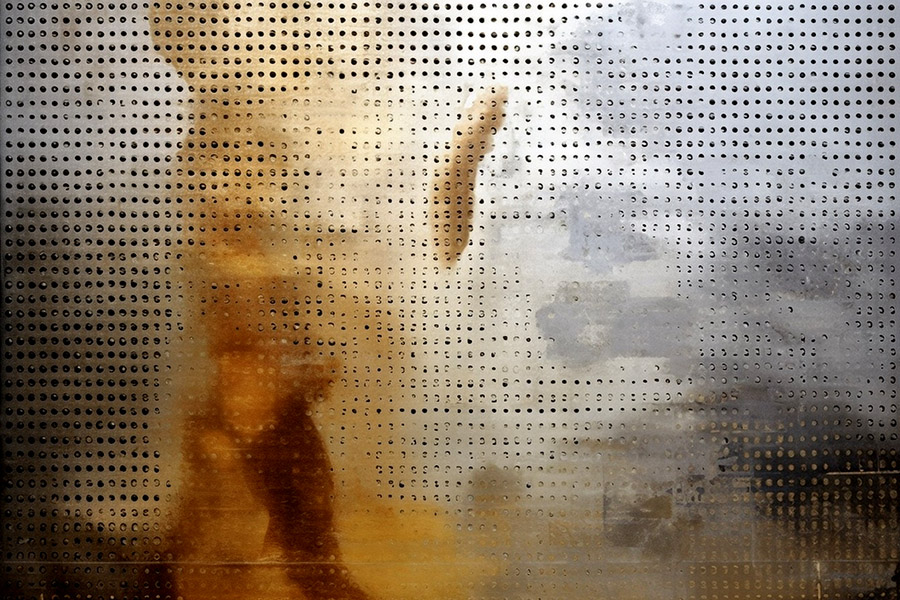


Forward purchase . . . sell short . . . option to buy . . . preemptive margin . . . offer to sell . . . offer temporarily reserved . . . first collateral . . . second collateral . . . deposit to drawing account … convert to FOE credits . . . hold in SAD credits . . . twelve thousand tons of stroon . . . mortgage forward . . . promise to buy . . . promise to sell . . . hold . . . margin . . . collateral guaranteed by previous deposit . . . promise to pay against the pledged land . . . guarantor . . . McBan land . . . MacArthur land . . . this computer itself . . . conditional legality . . . buy … sell … guarantee . . . pledge . . . withold . . . offer confirmed . . . offer cancelled . . . four thousand million megacredits . . . rate accepted . . . rate refused . . . forward purchase . . . deposit against interest . . . collateral previously pledged . . . conditional appreciation . guarantee . . . accept title . . . refuse delivery . solar weather . . . buy . . . sell . . . pledge . withdraw from market . . . withdraw from sale . . not available … no collections now . . . dependent on radiation . . . corner market . . . buy . . . buy . . . buy . . . buy . . . buy . . . firm title . . . reconfirm title . . . transactions completed . . . reopen . . . register . . . reregister . . . confirm at Earth central . . . message fees . . . fifteen thousand megacredits…
Soberly and huffily he went on, “There’s not much to it. If the money is discounted thirty-three and one third percent per trip and if it takes fifty-five trips to get to Old Earth, it takes a heap of money to pay up in orbit right here before you have a minicredit on Earth. Sometimes the odds are better. Your Commonwealth government waits for months and years to get a really favorable rate of exchange and of course we send our freight by armed sail-ships, which don’t go below the surface of space at all. They just take hundreds of thousands of years to get there, while our cruisers dart in and out around them, just to make sure that nobody robs them in transit. There are things about Norstrilian robots which none of you know, and which not even the Instrumentality knows – ” he darted a quick look at the Lord Redlady, who said nothing to this, and went on, “Which makes it well worth while not to muck around with one of our perishing ships. We don’t get robbed much. And we have other things that are even worse than Mother Hitton and her littul kittons. But the money and the stroon which finally reaches Old Earth itself is FOE money. F,O,E. F is for free, O is for on, E is for Earth. F,O,E – free on Earth. That’s the best kind of money there is, right on Old Earth itself. And Earth has the final exchange computer. Or had it.”
She suddenly slumped as though she had fainted or had gone to sleep. He held her with one arm and with his free hand he tipped her head against his shoulder so that she would look as though she were weary and affectionate, not unconscious. It was pleasant to hold her little female body, which felt fragile and delicate beyond belief. Her hair, disarrayed and windblown, still carried the smell of the salty sea air which had so surprised him an hour ago. She herself, he thought, was the greatest treasure of Earth which he had yet seen. But suppose he did have her? What could he do with her in Old North Australia? Under-people were completely forbidden, except for military uses under the exclusive control of the Commonwealth government. He could not imagine C’mell directing a mowing machine as she walked across a giant sheep, shearing it. The idea of her sitting up all night with a lonely or frightened sheep-monster was itself ridiculous. She was a playgirl, an ornament in human form; for such as her, there was no place under the comfortable grey skies of home. Her beauty would fade in the dry air; her intricate mind would turn sour with the weary endlessness of a farm culture: property, responsibility, defense, self-reliance, sobriety. New Melbourne would look like a collection of rude shacks to her.
It was not the sight of the Earth which surprised him – it was the smell. He suddenly realized that Old North Australia must smell dull, flat, dusty to Earth-men. This Earth air smelled alive. There were the odors of plants, of water, of things which he could not even guess. The air was coded with a million years of memory. In this air his people had swum to manhood, before they conquered the stars. The wetness was not the cherished damp of one of his covered canals. It was wild free moisture which came laden with the indications of things living, dying, sprawling, squirming, loving with an abundance of Earth had always seemed fierce and exaggerated! What was stroon that men would pay water for it – water, the giver and carrier of life. This was his home, no matter how many generations his people had lived in the twisted hells of Paradise VII or the dry treasures of Old North Australia. He took a deep breath, feeling the plasma of Earth pour into him, the quick effluvium which had made man. He smelled Earth again – it would take a long lifetime, even with stroon, before a man could understand all these odors which came all the way up to the ship, which hovered, as planoforming ships usually did not, twenty-odd kilometers above the surface of the planet.
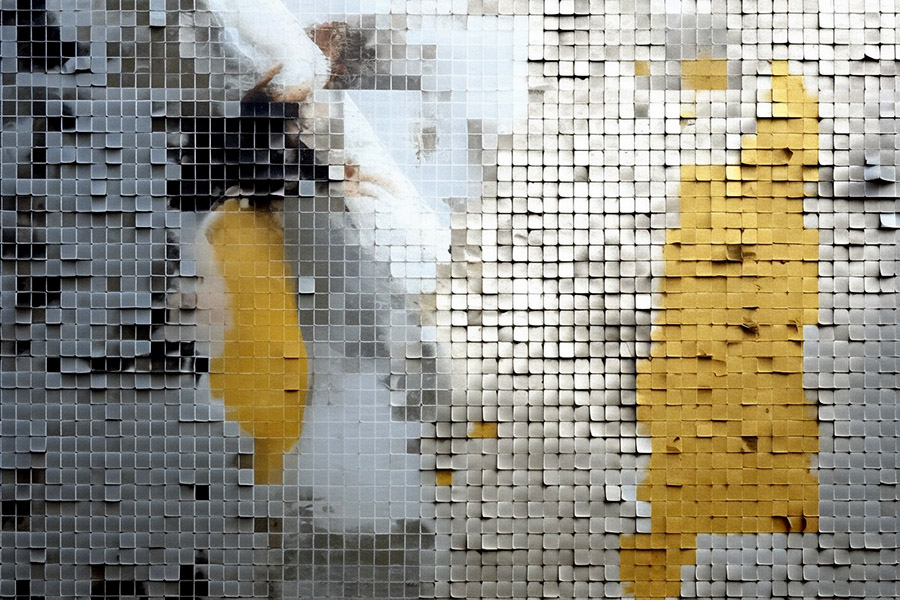


“Don’t talk, and I’ll tell you.” She had taken her field knife and was cutting the sticky shirt off him, so that she could tilt the bottle and spray right into the wound, “I just suspected you were in trouble, when Bill rode by the house and said something crazy, that you had bought half the galaxy by gambling all night with a crazy machine which paid off. I did not know where you were, but I thought that you might be in that old temple of yours that the rest of them can’t see. I didn’t know what kind of danger to look for, so I brought this.” She slapped her hip. Rod’s eyes widened. She had stolen her father’s one-kiloton grenade, which was to be removed from its rack only in the event of an offworld attack. She answered his question before he asked her. “It’s all right. I made a dummy to take its place before I touched it. Then, as I took it out, the Defense monitor came on and I just explained that I had hit it with my new broom, which was longer than usual. Do you think I would let Old Hot and Simple kill you, Rod, without a fight from me? I’m your cousin, your kith and kin. As a matter of fact, I’m number twelve after you when it comes to inheriting Doom and all the wonderful things there are on this station.”
He could speak to it at the extension which reached into the gap of hidden treasures. He talked to it, other times, at the talkpoint in the field, where the polished red-and-black metal of the old computer was reproduced in exquisite miniature. Or he could come to this strange building, the Palace of the Governor of Night, and stand as the worshippers of Diana had once stood, crying, “Great is Diana of the Ephesians!” When he came in this way, he had the full console in front of him, automatically unlocked by his presence, just as his grandfather had showed him, three childhoods before, when the old McBan still had high hopes that Rod would turn into a normal Old North Australian boy. The grandfather, using his personal code in turn, had unlocked the access controls and had invited the computer to make its own foolproof recording of Rod, so that Roderick Frederick Ronald Arnold William MacArthur McBan CLI would be forever known to the machine, no matter what age he attained, no matter how maimed or disguised he might be, no matter how sick or forlorn he might return to the machine of his forefathers. The old man did not even ask the machine how the identification was obtained. He trusted the computer.
The last heir, the very last heir, of their proudest old family had been found a half-freak. He was normal enough by Earth standards, but by Norstrilian measure he was inadequate. He was a bad, bad telepath. He could not be counted on to hier. Most of the time other people could not transmit into his mind at all; they could not even read it. All they got was a fiery bubble and a dull fuzz of meaningless subsememes, fractions of thought which added up to less than nothing. And on spieking, he was worse. He could not talk with his mind at all. Now and then he transmitted. When he did, the neighbors ran for cover. If it was anger, a bloody screaming roar almost blotted out their consciousnesses with a rage as solid and red as meat hanging in a slaughterhouse. If he was happy, it was worse. His happiness, which he transmitted without knowing it, had the distractiveness of a speed saw cutting into diamond-grained rock. His happiness drilled into people with an initial sense of pleasure, followed rapidly by acute discomfort and the sudden wish that all their own teeth would fall out: the teeth had turned into spinning whirls of raw, unqualified discomfort. They did not know his biggest personal secret.
The hiering-spieking device should have alerted him, excited him: it did not. As he walked through the market, he noticed that very few of the Earth people were communicating with one another telepathically. They preferred to babble in their loud airborne language, of which they had not one but many kinds, with the Old Common Tongue serving as a referent to those who had been endowed with different kinds of ancient language by the processes of the Rediscovery of Man. He even heard Ancient Inglish, the Queen’s Own Language, sounding remarkably close to his own spoken language of Norstrilian. These things caused neither stimulation nor excitement, not even pity. He had his own problems, but they were no longer the problems of wealth or of survival. Somehow he had a confidence that a hidden, friendly power in the universe would take care of him, if he took care of others. He wanted to get Eleanor out of trouble, to disembarrass the Hon. Sec., to see Lavinia, to reassure Doris, to say a good goodbye to C’mell, to get back to his sheep, to protect his computer, and to keep the Lord Redlady away from his bad habit of killing other people lawfully on too slight an occasion for manslaughter.
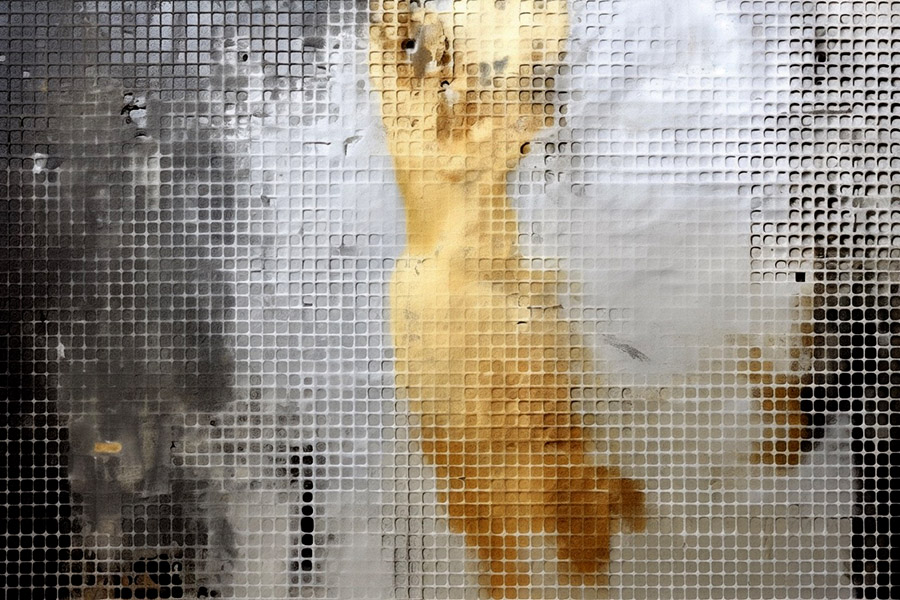


It didn’t even really belong to him: he belonged to it – the rolling dry fields, the covered rivers and canals, the sky catchments which caught every drop which might otherwise have gone to his neighbors. That was the pastoral business – its product immortality and its price water. The Commonwealth could have flooded the planet and could have crated small oceans, with the financial resources it had at command, but the planet and the people were regarded as one ecological entity. Old Australia – that fabulous continent of old Earth now covered by the ruins of the abandoned Chinesian cityworld of Aoujou Nam-bien – had in its prime been broad, dry, open, beautiful; the planet of Old North Australia, by the dead weight of its own tradition, had to remain the same. Imagine trees. Imagine leaves – vegetation dropping uneaten to the ground. Imagine water pouring by the thousands of tons, no one greeting it with tears of relief or happy laughter! Imagine Earth. Old Earth. Manhome itself. Rod had tried to think of a whole planet inhabited by Hamlets, drenched with music and poetry, knee-deep in blood and drama. It was unimaginable, really, though he had tried to think it through.
“He’s not hot and he’s not simple. He’s cold and complicated and cruel and unhappy. If we didn’t all of-us think that he was going to die in a little while, ten or a hundred years or so, we might vote him into a Giggle Room ourselves. For misery and incompetence. But he is Onseck and he’s after you. I’ve said it now. I shouldn’t have. But when I saw that sly cold face talking about you and trying to declare your board incompetent right while you, laddie, were having an honest binge with your family and neighbors at having gotten through at last – when I saw that white sly face creeping around where you couldn’t even see him for a fair fight – then I said to myself, Rod Mc-Ban may not be a man officially, but the poor clodding crutt has paid the full price for being a man, so I’ve told you. I may have taken a chance, and I may have hurt my honor.” Beasley sighed. His honest red face was troubled indeed. “I may have hurt my honor, and that’s a sore thing here in Norstrilia where a man can live as long as he wants. But I’m glad I did. Besides, my throat is sore with all this talking. Give me another bottle of bitter ale, lad, before I go and get my horse.”
C’william looked at Rod with more than ordinary shrewdness. There was a touch of kindness in his attitude. He was tall for a cat-man; few animal features were left to him, because of old age, which reduces racial and sexual contrasts to mere memories, had wrinkled him into a uniform beige. His hair was not white, but beige too; his few cat-whiskers looked old and worn. He was garbed in a fantastic costume which – Rod later learned – consisted of the court robes of one of the Original Emperors, a dynasty which had prevailed more many centuries among the further stars. Age was upon him, but wisdom was too; the habits of life, in his case, had been cleverness and kindness, themselves unusual in combination. Now very old, he was reaping the harvest of his years. He had done well with the thousands upon thousands of days behind him, with the result that age had brought a curious joy into his manner, as though each experience meant one more treat before the long bleak dark closed in. Rod felt himself attracted to this strange creature, who looked at him with such penetrating and very personal curiosity, and who managed to do so without giving offense.
I know a lot even if I don’t feel like talking about it and I know that the most wonderful real man in all the planets came right down here into this big room and talked to these people because he is the man that the long silly girl is singing about because she does not have him but why should she anyhow and I am really the one who is going to get him because I am a turtle child and I will be right here waiting when all these people are dead and pushed down into the dissolution vats and someday he will come back to Earth and I will be all grown up and I will be a turtle woman, more beautiful than any human woman ever was, and he is going to marry me and take me off to his planet and I will always be happy with him because I will not argue all the time, the way that bird-people and cat-people and dog-people do, so that when Rod McBan is my husband and I push dinner out of the wall for him, if he tries to argue with me I will just be shy and sweet and I won’t say anything, nothing at all, to him for one hundred years and for two hundred years, and nobody could get mad at a beautiful turtle woman who never talked back…
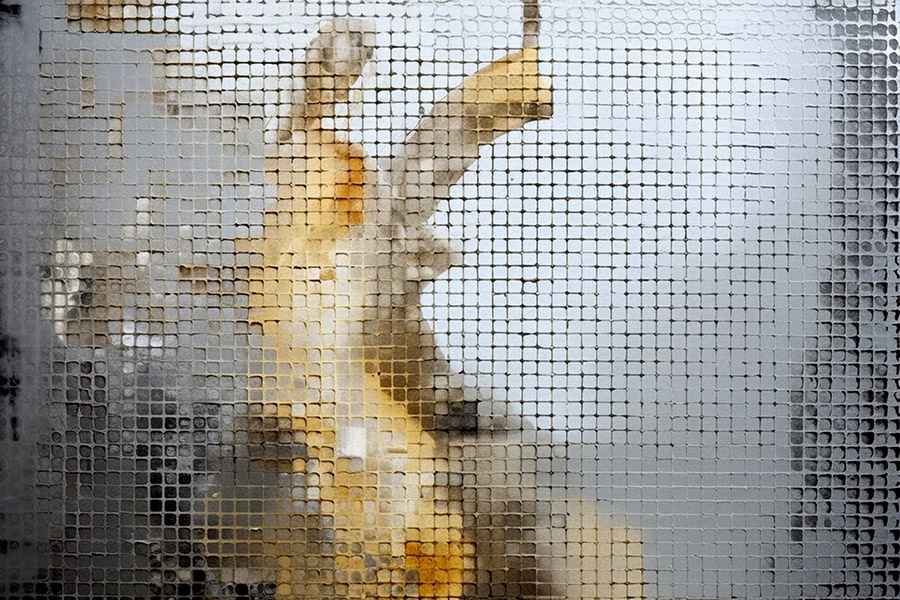


He shook his head as if to get away from the cobwebs of an irrecoverable tragedy. “Maybe,” he thought to himself, “that’s the way people felt about death when they did not die on schedule, the way most worlds have it, or if they do not meet death a few times ahead of time, the way we do in Norstrilia. They must have felt pretty sticky and uncertain.” Another thought crossed his mind and he gasped at the utter cruelty of it. “They did not even have Unselfing rounds that far back! Not that we need them any more, but imagine just sliding into death, helpless, useless, hopeless. Thank the Queen we don’t do that!” He thought of the Queen, who may dead for more than fifteen thousand years, or who might be lost in space, the way many Old North Australians believed, and sure enough! there was her picture, with the words “Queen Elizabeth II.” It was just a bust, but she was a pretty and intelligent-looking woman, with something of a Norstrilian look to her. She looked smart enough to know what to do if one of her sheep caught fire or if her own child came, blank and giggling, out of the traveling vans of the Garden of Death.
Cordwainer Smith, 1975
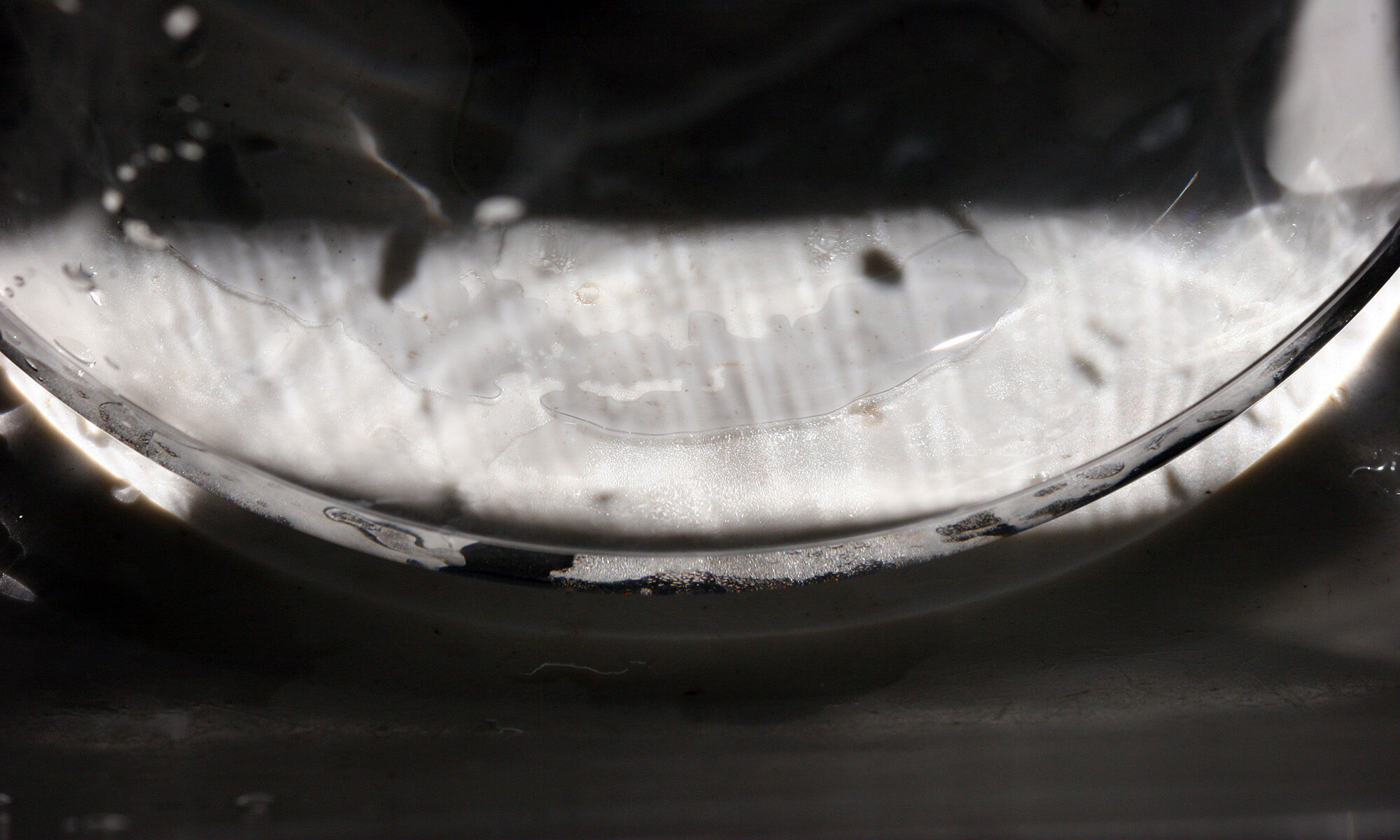

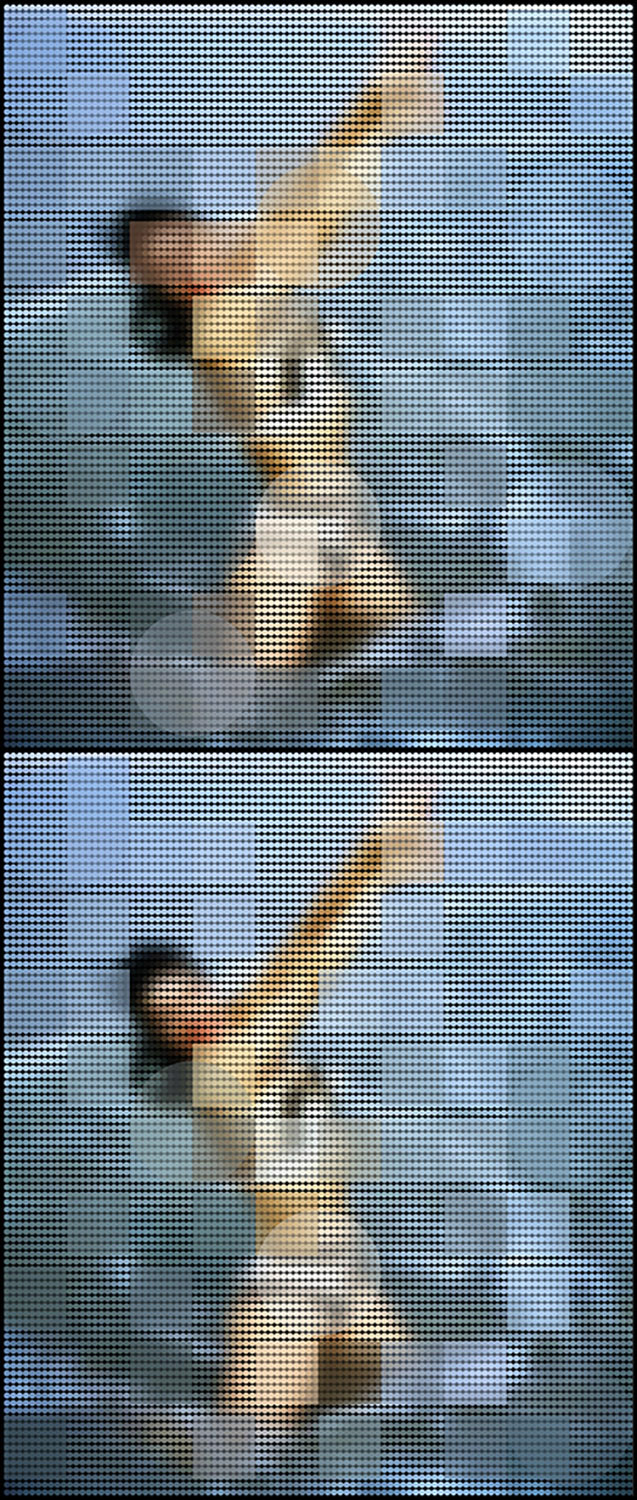
Beautiful in so many my ways.
I recently finished a novel by Brian Catling and the cadence and imagery of these passages immediately immersed me in familiar territories.
For this splendor of words, I thank you!
Sentences, an echo of the human and the near-human, the organic and the synthetic, an intermingling of timelines that spiral out towards stars and dive deep into Earth’s own forgotten corridors. The existential weight of “Old North Australia” calls to mind that sprawling vastness around modernity and ancient narratives.
kaleidoscope imperfections—how it fractures and breaks, splintering into myriad hues of morality, technology, spirituality. A ceaseless quest for more, for immortality, so vividly encapsulated in our imagined future yet juxtaposed against our own impermanence.
Daimoni, ah, those mysterious architects—they unsettle and intrigue in elusive Dreamtime, stargazers meeting earth walkers. What are we but wayfarers, traversing dimensions of thought, belief, existence, caught.
Is this not a mirror ourselves in the same moment?